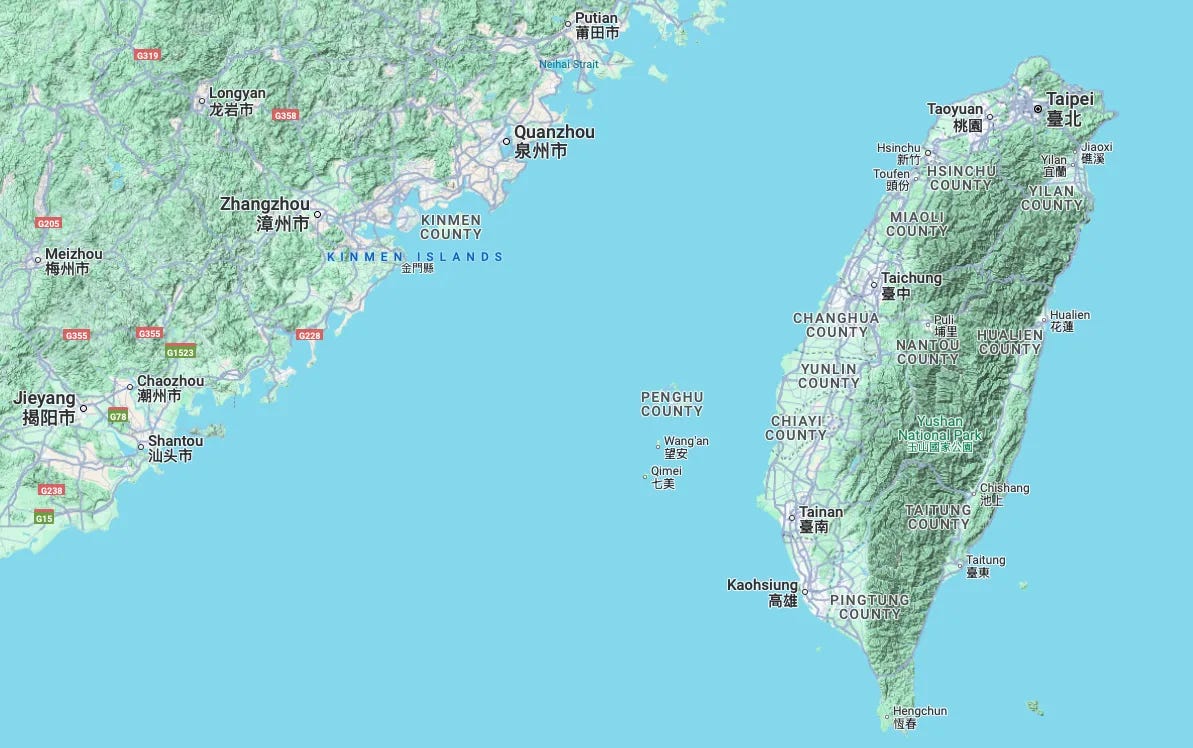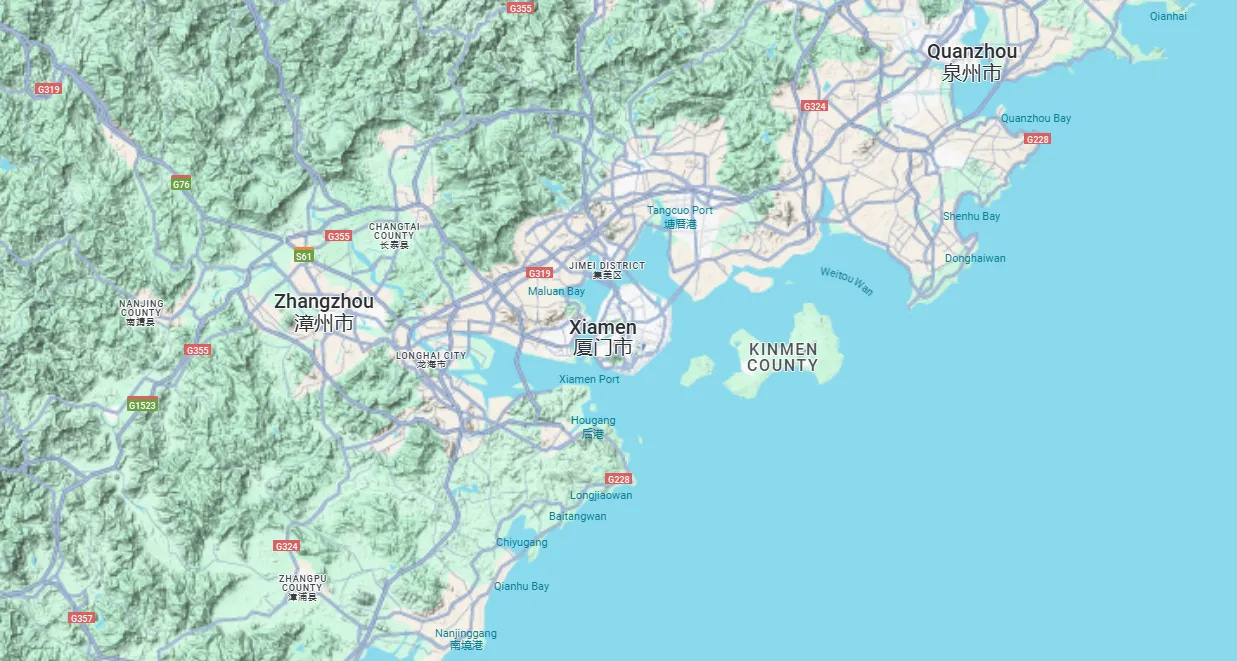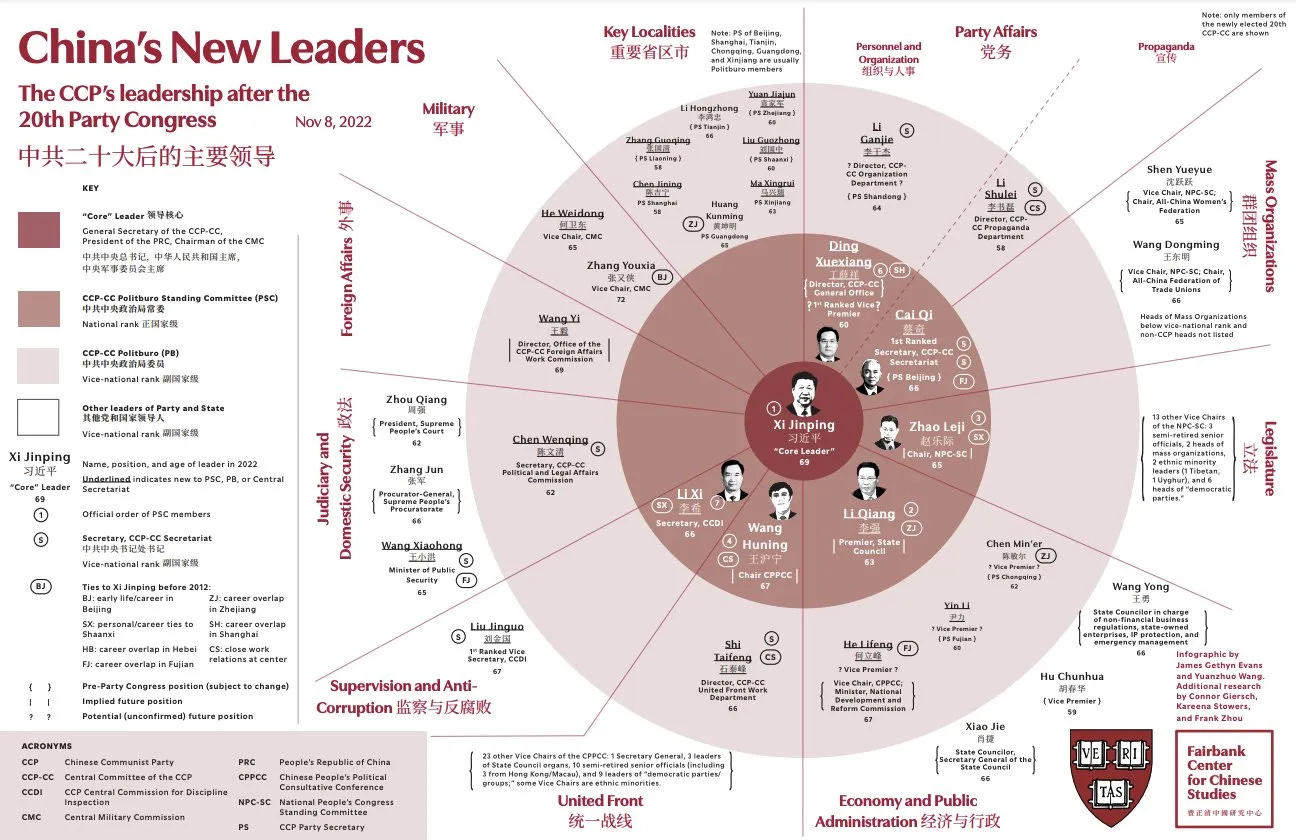[BONUS] Will China Invade Taiwan? (no) (but in 2027)
I'm technically not the least qualified person talking about this
Among American-led discussions about China, one question looms over the rest: Will China Invade Taiwan? Any post, podcast, or YouTube video essay about semiconductors, AI, TikTok, shipbuilding, energy production, global diplomacy, demographics, or Sino-American vibes has an asterisk imposed on its title, because the Internet Hivemind has decided that a naval confrontation in the Taiwan Strait is one of the few ways to convince a brainrotted readership to read a thing that cites books.
Sources are divided. On the pro side, intelligence analyst Ryan McBeth flatly says an invasion is likely in 2027, and I was convinced after a woman I went on a date with said her defense-contractor employer was also preparing for 2027. On the con side, writer and business analyst Robert Wu argues that China has no political ambitions in the West—just commercial interests. (Those jets pointed at Taiwan? NERF ordnance.) Out in left field, we have Peter Zeihan arguing that future historians will see 2030 as the point at which the Mao Dynasty fell and plunged the Middle Kingdom back into darkness. And everyone else is scrambling to find a synthesis to the dialectic of “China Seeks to Invade Taiwan” and “Why the Hell Would Beijing Do That?”
Now, I’m no China expert—not only have I never played Go, but I also found Henry Kissinger’s On China quite informative. But I have read a good chunk of writing by Western China watchers, watched several reviews of the Chinese brands taking market share in the road bike industry, and found Capper win ground on my 2025 Most Listened list on Apple Music. This—technically—makes me more informed about China than many ideological energy advocates are about energy.
So, let’s try to square the circle.
What Does China Actually Want?
The true-but-useless answer is “There are multiple stakeholders within Chinese business and politics who have conflicting aims and ideological motivations, so ascertaining a clear strategic goal is a doomed project.” Such talking points deserve the bullying they get.
The Chinese Communist Party want a China that is prosperous, but they prefer a China they control. Don’t laugh; this is how the Democratic and Republican Parties treat the country they each claim to represent. Xi in particular seems worried that young Chinese don’t have the virile hustle of the post-50s and post-60s cadres who got a taste for bitterness growing up. This is different from American Boomers complaining about lazy Zoomers, because the Great Leap Forward and Cultural Revolution simply hit different.
The young post-90s and post-00s cohorts in China, by contrast, want that "boom-era" look, Maseratis and bottles of Macallan, and advancement in a country that saw meteoric growth until very recently. They’re broadly finding advancement challenging between stressful work cultures, ballooning real estate prices, and persistent bad vibes. So, they’re settling for fandom, poasting, and wasting their lives on Honor of Kings. Don’t laugh; kyla scanlon has a similar story about American Zoomers.
Chinese business interests, meanwhile, want to make a buck. Obviously. But that looks surprisingly hard in China. Look at the Shanghai Stock Exchange (SSE) Composite Index: near-flat since 2009. Or consider Local Government Financing Vehicles (LGFVs): 5% money, chasing 1% returns. So where do you invest your money? I guess you could simply out-do your competitors so that when the economy seizes, you’ll buy their assets in bankruptcy. But your competitors had the same idea—that’s why Chinese product got so good so quickly.
What do any of these people get out of taking Taiwan?
Taking Taiwan is a Lot of Pain for Little Gain
Take American confrontation out of the picture and look at this topographical map of Taiwan:
You already know it’s a 130km swim at best. The east is jungle and mountain. The west is urban. It’s malaria country, too. If you want to imagine what taking the high ground might look like, merge Afghanistan with Okinawa. If you want to imagine a Battle of Taipei, recall how the Gaza war is going and imagine if Hamas had air power and three artillery commands.
Taiwan would be a difficult invasion target if you had unlimited manpower, deep pockets, and durable supply chains. China has a rapidly-aging demography, a looming debt crisis, and domestic oil production that covered a net 26% of demand in 2023. And well…look at the kids you’d send over the Taiwan Strait. The initial surge are probably good soldiers, but what about the backup still doomscrolling on Weibo? What are the odds they won’t simply lie flat in Bali, too?
And say you take Taipei—what then? Will the Nationalists take that L better than Chiang Kai-shek did? Could SMIC rev up those extreme ultraviolet lithography rigs in the shattered remains of Hsinchu Science Park? Is it not cheaper to buy what you can, smuggle what you can’t, and encourage homegrown innovation in the process?
Yes, Taipei is a thorn in Beijing’s side. But the cure is worse than the affliction. The 1992 Consensus is awkward, but it enables the mainland and the island to do business. Everyone gets to make a buck.
The Axis of Resistance is Good Business
But if China relies so much global trade, why are they pushing so hard against the international (Western) order that props it up?
Well, I am a rube, not a Pekingologist. I have neither finished my Annping Chin translation of the Analects nor gotten appropriately blitzed off Moutai, and the CCP’s Counter-Pekingology is—as Solo Wing Pixy attests—quite advanced. However, I am studying for an MBA, and my coursework has emboldened me just enough to claim that “arbitrage” translates quite well into Hokkien.
Imagine you’re Xiamen Chen, CEO of Xiamen Middle-Tier Carbon Fiber Manufacturing Co., Ltd. You produce carbon fiber components for the burgeoning Chinese road bike industry, as is the style in town. You, like all your competitors, cut your teeth as an Original Equipment Manufacturer (OEM) for Western bike brands. Your manufacturing is pretty good, but in the vicious competitive environment of Chinese industry, you can’t keep up. Your competitors got wise to direct-to-consumer sales and spun out their own brands—Winspace, LightCarbon, Yoeleo—that have now broken out of the Chinese market. Western journalists are singing their praises. Yoeleo even got their own-brand bikes into the Tour de France!
Now, you’re no genius—you’re just Xiamen Chen. But you grew up in the wake of the Cultural Revolution: you’re a hustler. And you realize that road bikes aren’t the only industry that needs carbon fiber components. Russian drones could use carbon fiber, too. You can’t keep up with LightCarbon’s quality control (QC), or Yoeleo’s branding chops, so you’re losing Western business anyway. But the Russians don’t need exquisite QC or good branding—your middle-tier carbon fiber manufacturing works just fine! And because the West-facing big boys care too much about sanctions to parley with those frosty northerners, you get the market all to yourself.
What does this have to China’s strategic goals? Nothing. Beijing is a three-hour flight away, and…okay, let’s do some geographic determinism. This is a topographical map of Xiamen:
Ocean to the east, jungle and mountain to the west, sticky heat in the middle. Ask yourself: is this the hometown of a docile people who listen to a centralized state authority, or has this been a redoubt for two millennia worth of raiders, traders, and barbarians who don’t like being told what to do?
Chinese business interests don’t need to care about geopolitics to economically integrate with an “Axis of Resistance” to the West. They need only see a global market that Western competitors refuse to touch and a local financial environment where stocks get no returns and municipal development bonds are an obvious time bomb—for the creditors. Your industrial assets might not be worth the loans on your head, but there is always value in moving product. And if your Russian and Iranian customers will pay you in gold, oil, or USD, all the better.
Whom Else Would China Fight but Americans?
But Xiamen Chen isn’t building ships with ramps on them—the kind of ships you basically only need for an amphibious invasion of a well-defended island. What gives? Well, as little as I know about Pekingology, I know even less about military procurement. But I’ve watched Perun for a year now, and that makes me more qualified than many OSINT Twitter accounts.
And to steal a Perun line, military strategy is built strategy. Designing a modern “exquisite” platform takes a decade-plus. So designing such a platform requires defense planners to guess—ahead of time—whom it would shoot at. Even if shooting at those folks is imprudent. Even if the vicissitudes of geopolitics mean those targets never get painted. It’s better to prepare countermeasures you never use than to buy a pack of cigarettes after the crisis arrives.
So, if you’re a defense planner in China, you ask yourself—whom might China fight in fifteen years? The Russian border is stretched then, but Outer Manchuria might not be worth a nuclear exchange. The Indians treat everyone like frenemies, but how much war can you really do atop the Himalayas? The only threat that would pose a serious future conventional military threat are the Americans. The United States has no good reason to fight China…today. But think like a Communist: would you trust the Americans? Sure, their people like making a buck as much as your people do, so there’s business on that front. But what happens when someone makes an American feel weak? Are you going to tell Hangzhou to stop innovating? Liang Wenfeng would build a mixture-of-experts model in a cave, with a box of scraps!
2027 is the Least Bad Time to Act
The hardware and the training are building at an impressive pace. But Chinese military planners must wrangle with some unfortunate downward trendlines. At the macro scale, mass retirements, shrinking youth populations, and simmering debt bubbles threaten to strangle the Chinese economic miracle. And in Zhongnanhai, another clock ticks. Dig this 2022 chart of the 20th Party Congress:
That’s a lot of men in their late 60s and early 70s. Maybe these guys still have The Sauce. But Biden didn’t. Brezhnev didn’t either, at this age. And again, I’m no Pekingologist: I have only read The Art of War once, as a YouTube audiobook, drunk. By contrast, Beijing elites know how to manipulate information. But I have found, both in the politics I have witnessed and the organizations I have worked in, that gerontocratic leadership corps forget to hire their replacements. Xi will be 74 in the fall of 2027. He will build the 21st Party Congress around this time, too. Will his knack for wordplay remain extant? Will a cult of personality poison his brain like it did Khrushchev’s? (Or Musk’s?) Will he trust the next generation to keep up the pressure?
The upward trendlines of industrial and military growth intersect the downward trendlines of economic fragility and aging leadership in 2027.
Invading Taiwan is a lot of pain for little gain. China may depend on the international order and global trade, but the Axis of Resistance is just good business for domestic interests. The People’s Liberation Army is gearing up for a fight with the Americans because we are the only threat that would need such a force—better to have it and not use it, than to be caught off-guard.
Invading Taiwan is reckless, self-destructive, counterproductive, and potentially nation-killing—but if the Central Military Commission were to press the button, they’d do so in 2027. If they wait much longer, they may lose their chance for a generation or more.
But do we care—really? I remember one Trump/Tech/Heritage Right conversation in which one person said, “I don’t care if Western allies look like liberal American democracies,” and another responded, “I don’t care if America stays a democracy!” If that’s what Americans believe—and more do so than we care to admit—then why bother as long as the chip fabs stay online?
This post and the information presented are intended for informational purposes only. The views expressed herein are the author’s alone and do not reflect those of their current or previous employers or any elected officials. The author makes no recommendations toward any electric utility, regulatory body, or other organization. While certain information contained herein has been obtained from sources believed to be reliable, the author has not independently verified this information, and its accuracy and completeness cannot be guaranteed. Accordingly, no representation or warranty, express or implied, is made as to, and no reliance should be placed on, the fairness, accuracy, timeliness or completeness of this information. The author assumes no liability for this information and no obligation to update the information or analysis contained herein in the future.






Interesting piece, I agree with some of the points. But sorry buddy, many of the assumptions in the article are fundamentally flawed. My second article will focus on the PLA, and the third on Taiwan. Perhaps there will be answers to the points in your article in these pieces.
Good bottom line of the article. The spice must flow 🤑🤑